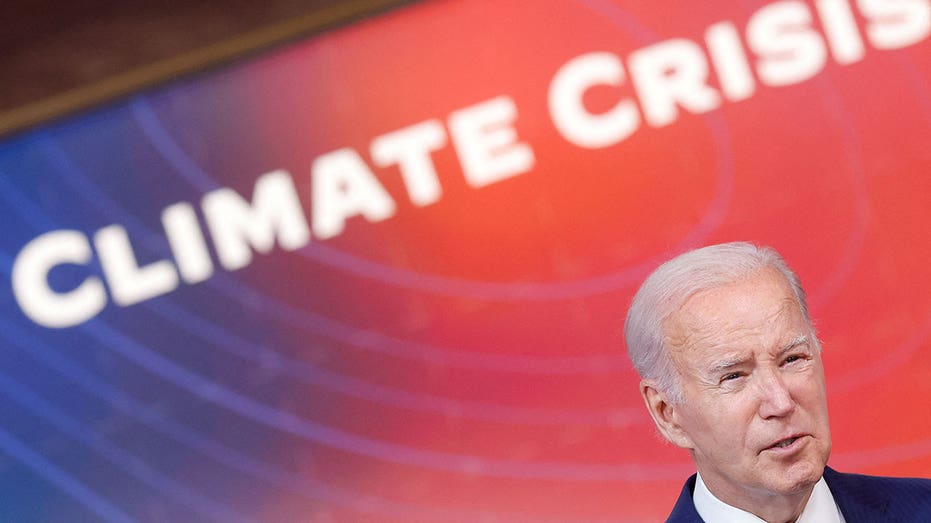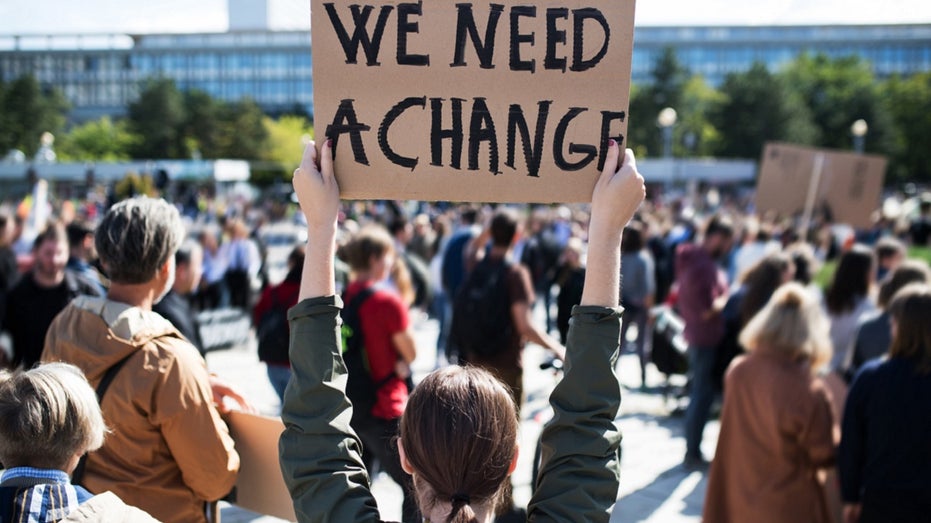Biden’s new water heater ban will raise energy prices for poor, elderly: expert

Climate Depot Editor-in-Chief Marc Morano reacts to comments from a Senate hearing on climate concerns and sounds off on the Biden administration’s latest climate campaign called ‘The Bottom Line.’
The Biden administration is blocking some natural gas water heaters from the market as part of its climate change agenda, which critics say will raise energy costs for low-income families and seniors.
The move in the administration’s final days would take non-thermal, natural gas-fired water heaters off the shelves by 2029 in an effort to reduce carbon dioxide emissions, which climate change advocates and President Biden say is the cause of global warming.
The new rules will require new tankless gas water heaters to use 13% less energy than today’s inefficient tankless models.
The Biden administration is blocking some natural gas water heaters from the market as part of its climate change agenda, which critics say will raise energy costs for low-income families and seniors. (Ting Shen/Bloomberg via Getty Images, left, Hearst Newspapers via Getty Images, right. / Getty Images)
US CHAMBER OF COMMERCE, OIL GROUP SUES VERMONT OVER LAW REQUIRING COMPANIES TO PAY GLOSSARY DAMAGES
The rules apply to both non-condensing and condensing gas water heaters, but the rules raise efficiency requirements to a threshold that only condensing models can meet, effectively banning cheaper but less efficient non-condensing models, according to The Washington Free Beacon. Condensation technology wastes less heat.
Consumers will be forced to buy more expensive models or less expensive tank water heaters, which are less efficient than the models banned by the DOE.
Tankless technology is often used where space is at a premium, such as in apartments and small homes, Diana Furchtgott-Ruth, director of the Center for Energy, Climate and Environment, wrote in the Daily Signal.
For example, Rinnai America is the only company that manufactures tankless water heaters in the United States. Its tankless, non-condensing natural gas water heater sells for about $1,000 at Home Depot, compared to $1,800 for a 75-gallon condensing tank.
The new rules were published by the Department of Energy (DOE) the day after Christmas, although the agency did not make a public announcement. Fox Business has reached out to the DOE for comment.

President Biden delivers his remarks on extreme heat conditions on July 27, 2023. (Reuters/Jonathan Ernst/File Photo/Reuters Pictures)
OIL GIANT SHEL WINS CLIMATE APPEAL IN LANDMARK CARBON-EMISSIONS CASE
Matthew Agen, the American Gas Association’s chief energy advocate, criticized the move, calling it “reckless.”
“The final rule is a violation of the Energy Policy and Conservation Act (EPCA), which prohibits DOE from promulgating a standard that makes a product with a different performance rating unavailable,” Agen said in a statement before the rules were officially published.
To make matters worse, Agen said, the DOE’s own analysis says the average life-cycle savings would be roughly $112 over the product’s 20-year lifespan. He said this law cannot be justified for legal and practical reasons.
“Forcing low-income and senior customers to pay more upfront is especially concerning. DOE’s decision to proceed with the flawed final rule is deeply disappointing.”
Rinnai recently built a $70 million, 360,000-square-foot factory in Georgia to manufacture non-rotating gas burners for the U.S. market, according to the Washington Free Beacon.
Frank Windsor, president of Rinnai America, told the outlet that the move was “a bad deal.”
He said the company began construction in 2020 after President Trump’s efforts to improve manufacturing in America, and employs hundreds.
“When this law goes into effect, all that production will be out of business,” Windsor told the outlet. “Many of the big assets we have invested in will have to be abandoned.”

People with placards and placards during the global climate change strike. (iStock / Stock)
GET FOX BUSINESS ON THE GO BY CLICKING HERE
However, the move has been welcomed by the non-profit organization Appliance Standards Awareness Project (ASAP), saying it will eliminate 32 million tons of carbon dioxide from water heaters sold over 30 years.
The group, which supports reducing energy and water use in electronics, says it has promoted DOE’s efficiency standards.
“This is a commonsense step that will lower total housing costs while reducing global warming emissions,” said Andrew deLaski, executive director of ASAP.
“These long-overdue standards will ensure that more households save with proven energy-saving technology that is already being used in the majority of tankless units.”
Source link



